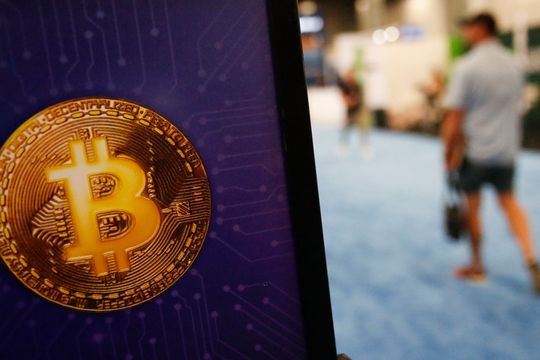Bitcoin outperformed major U.S. stock indexes on Wednesday, though both assets slid after the Federal Reserve raised its benchmark interest rate by 0.75 percentage point, as expected, while investors and traders assessed the path ahead for monetary policy.
The central bank’s policy statement on Wednesday hinted at a potential slowdown in its path to tighten the monetary policy to combat inflation, while Fed Chairman Jerome Powell said in a news conference that it was “very premature” to be thinking about a pause in rate hikes. The ultimate target for its key rate is likely higher than previously expected, Powell said.
Bitcoin BTCUSD, 0.61% fell 1.4% to around $20,144 since 9:30 am Eastern time, when the U.S. stock market opened, according to CoinDesk data. All three stock indexes posted greater losses, with the Dow Jones Industrial Average DJIA, -1.55% ending down 500 points, or 1.6%, on Wednesday. The S&P 500 SPX, -2.50% dropped 2.5% and the Nasdaq Composite COMP, -3.36% tanked 3.4%.
Bitcoin has seen lower volatility than U.S. stocks since mid-October.
“Bitcoin’s performance today reflected the slow, but tangible decoupling from stocks we’ve started to see more of in recent weeks,” according to Michael Safai, managing partner at Dexterity Capital.
A wave of high-profile job cuts in crypto has done little to move prices, Safai said. “Some of this can be attributed to a recognition that the bigger companies in crypto need to trim themselves a bit, but also to the fact that global macro is still influential, even as correlations have softened,” he said.
Most recently, billionaire Michael Novogratz’s Galaxy Digital Holdings is reportedly exploring eliminating 20% of its workforce, Bloomberg reported, after crypto companies such as Coinbase, Genesis, NYDIG and Crypto.com cut their head counts earlier this year. Representatives of Galaxy didn’t respond to emails seeking comment for this article.
“Unfortunately, this also means that markets are not responding to some of the more promising growth we’re seeing among newer projects, which is a good sign in an otherwise cold market,” Safai said.

